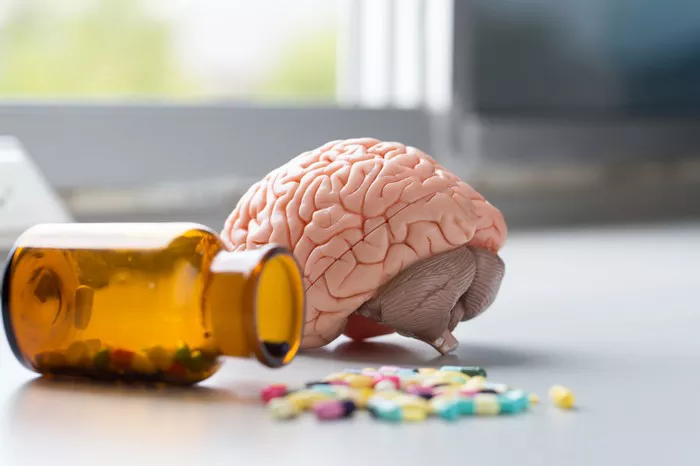Bipolar disorder is a complex mental health condition characterized by significant mood swings, including manic highs and depressive lows. The management of this disorder involves a careful balance of medication, therapy, and lifestyle adjustments. One often overlooked but crucial aspect of managing bipolar disorder is the impact of interpersonal relationships. Relationship problems can significantly influence the course and severity of bipolar symptoms, posing additional challenges for individuals battling the disorder. This article explores how relationship issues can affect bipolar disorder, the mechanisms behind these effects, and strategies for mitigating such influences.
Understanding Bipolar Disorder
Before delving into the specifics of how relationship problems impact bipolar disorder, it is essential to establish a foundational understanding of the disorder itself.
Defining Bipolar Disorder
Bipolar disorder, formerly known as manic-depressive illness, is a mental health condition that causes extreme mood swings that include emotional highs (mania or hypomania) and lows (depression). These mood swings can affect sleep, energy levels, behavior, judgment, and the ability to think clearly. Episodes may occur rarely or multiple times a year.
Types of Bipolar Disorder
Bipolar disorder is divided into several subtypes, each characterized by the pattern of mood swings:
Bipolar I Disorder: This subtype is characterized by manic episodes lasting at least seven days or by manic symptoms that are so severe that immediate hospital care is needed. Usually, depressive episodes occur as well, typically lasting at least two weeks.
Bipolar II Disorder: Defined by a pattern of depressive episodes and hypomanic episodes, but not the full-blown manic episodes that are typical of Bipolar I Disorder.
Cyclothymic Disorder: Periods of hypomanic symptoms as well as periods of depressive symptoms lasting for at least two years (one year in children and adolescents); however, the symptoms do not meet the diagnostic requirements for a hypomanic episode and a depressive episode.
Treatment and Management
Treatment for bipolar disorder is usually lifelong and often involves a combination of medications and psychotherapy. Effective management also includes lifestyle management, such as maintaining a routine, managing stress, and monitoring mood changes.
Impact of Relationship Problems on Bipolar Disorder
Interpersonal relationships can play a significant role in the management and course of bipolar disorder. Relationship stress, in particular, can be a potent trigger for mood episodes.
Relationship Stress as a Trigger
Individuals with bipolar disorder often find that periods of high stress can precipitate manic or depressive episodes. Relationship problems, whether they involve familial ties, friendships, or romantic partnerships, can be significant sources of stress. Common relationship issues such as communication difficulties, trust issues, and conflict can exacerbate stress and, by extension, influence the frequency and severity of mood swings.
The Role of Social Support
Conversely, strong, supportive relationships can be stabilizing for people with bipolar disorder. Social support from loved ones can provide emotional comfort, help manage stress, and foster a sense of belonging and acceptance. Lack of support or dysfunctional relationships can remove these benefits and leave individuals vulnerable to worsening symptoms.
Interpersonal and Social Rhythm Therapy (IPSRT)
Recognizing the impact of relationships on bipolar disorder, Interpersonal and Social Rhythm Therapy (IPSRT) was developed. IPSRT is a form of psychotherapy that focuses on stabilizing daily rhythms such as sleeping, eating, and activity schedules while resolving interpersonal problems. This therapy underscores the importance of stable relationships in managing bipolar disorder effectively.
Mechanisms of Influence
The relationship between relationship problems and bipolar symptoms can be understood through various psychological and physiological mechanisms.
Emotional Dysregulation
Relationship problems can lead to heightened emotional responses, which can disrupt the emotional regulation abilities of individuals with bipolar disorder. This dysregulation can trigger or worsen episodes of mania or depression.
Sleep Disruption
Interpersonal stress can also impact sleep patterns. Since sleep disruption is a well-known trigger for manic episodes, relationship-induced sleep problems can exacerbate the cycle of bipolar symptoms.
Behavioral Activation System (BAS) Dysregulation
The Behavioral Activation System (BAS) in the brain regulates responses to reward and motivation. For individuals with bipolar disorder, the BAS may be overly sensitive and can be triggered by interpersonal stressors, leading to manic episodes.
Strategies for Managing Relationship Influences
To mitigate the impact of relationship problems on bipolar disorder, individuals and their support networks can adopt several strategies.
Communication and Boundaries
Improving communication skills can help reduce misunderstandings and conflicts in relationships. Setting clear boundaries can also help manage expectations and reduce relationship stress.
Couple and Family Therapy
Engaging in couple or family therapy can address the underlying issues in relationships that may contribute to stress. Therapy provides a platform for individuals and their loved ones to understand the impact of bipolar disorder on relationships and vice versa.
Stress Management Techniques
Adopting stress management techniques such as mindfulness, meditation, and regular exercise can help individuals manage the stress arising from relationship problems more effectively.
Regular Therapy and Support
Regular sessions with a mental health professional can help individuals with bipolar disorder navigate the complexities of their interpersonal relationships. Support groups for both those with the disorder and their loved ones can also provide understanding and insights.
Conclusion
Relationship problems can significantly impact the course of bipolar disorder, influencing both the frequency and severity of mood episodes. Understanding the dynamics of these influences is crucial for effectively managing the disorder. By fostering healthy relationships, employing therapeutic strategies, and maintaining a supportive network, individuals with bipolar disorder can achieve better stability and improve their quality of life. Addressing relationship issues not only helps in managing bipolar disorder but also enhances overall well-being and social functioning.
[inline_related_posts title=”You Might Be Interested In” title_align=”left” style=”list” number=”6″ align=”none” ids=”8522,8519,8434″ by=”categories” orderby=”rand” order=”DESC” hide_thumb=”no” thumb_right=”no” views=”no” date=”yes” grid_columns=”2″ post_type=”” tax=””]































